Case Commentary: When can directors, employees, independent contractors claim the small business deduction?
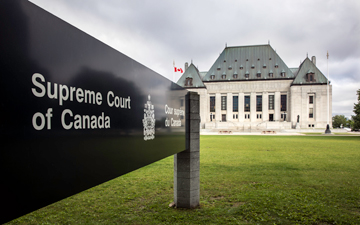
The Supreme Court of Canada recently denied leave to a taxpayer’s unusual appeal of a Tax Court decision, explains Canadian tax lawyer David J Rotfleisch
Introduction: Director's corporation claiming small business deduction
 |
David J Rotfleisch, CPA, JD is the founding tax lawyer of Taxpage.com and Rotfleisch & Samulovitch P.C., a Toronto-based boutique tax law corporate law firm. |
In August 2024, the Supreme Court of Canada (SCC) denied the application for leave to appeal to the SCC by the appellant taxpayer, Astro Consulting Inc. ("Astro"). The taxpayer previously appealed, unsuccessfully, to the Tax Court of Canada (TCC) and then to the Federal Court of Appeal (FCA). In the appeals, the taxpayer sought to claim the small business deduction for its income in the 2012-2014 taxation years under subsection 125(1) of the Income Tax Act (ITA).
The small business deduction is available to a corporation that is, throughout the year, a Canadian-controlled private corporation. The small business deduction reduces the federal tax of a Canadian-controlled private corporation by applying the small business deduction rate on the active business income carried on in Canada, up to the business limit. The small business deduction rate and the business limit may change from time to time; currently, the small business deduction rate is 9% and the business limit is the first $500,000 of the active business income of the Canadian-controlled private corporation. The issue in dispute was whether the income of Astro, the appellant taxpayer, was active business income and thus qualified for the small business deduction.
The Canada Revenue Agency (CRA) argued that Astro's income was from a personal services business, an activity that is explicitly excluded from active business per the definition of "active business carried on by a corporation" in subsection 125(7) of the ITA. The experienced Canadian tax litigation lawyer for Astro admitted that it indeed carried on a personal services business, but that the income received is carved out of the income from a personal services business per the definition of "personal services business" in subsection 125(7) of the ITA because the income was received from corporations associated with itself.
Corporate structure: Director' corporation and its sources of income
Behind the veil of Astro was Mr. Glazier, who owned 100% of the voting shares of Astro, whereas his wife Mrs. Glazier owned 100% of the non-voting shares. Mr. Glazier was the sole director and officer of Astro. He was a professional engineer, carrying on all the business activities provided by Astro, which was to provide engineering, consulting, and management services. Astro did not have any other employees.
Mr. Glazier was also a director of Lanmark Holdings. The number of directors of Lanmark Holdings increased from four in 2012 to eight in 2013. Astro was a corporate shareholder of Lanmark Holdings. The number of shareholders of Lanmark Holdings increased from four in 2012 to eight in 2013. All shareholders were corporations owned by other directors of Lanmark Holdings.
Lanmark Holdings had two wholly owned subsidiaries, Lanmark Engineering and Lanmark Resources. The directors of Lanmark Holdings were also the directors of Lanmark Engineering and Lanmark Resources.
One hundred per cent of the income earned by Astro was from Lanmark Holdings and Lanmark Engineering. Astro recorded the income as "consulting fees," broken down to "consulting income" from Lanmark Holdings and "profit sharing" from Lanmark Engineering. Astro claimed the small business deduction for its income and the deduction was denied by the CRA.
Active business vs. Personal Services Business: the but for test
The CRA argued that Astro's income was from a personal services business, not from active business eligible for the small business deduction. The CRA argued that Mr. Glazier was a specified shareholder of Astro and an incorporated employee who performed services on behalf of Astro. The CRA applied the but for test, in which Mr. Glazier, according to the CRA, would reasonably be regarded as an officer or employee of the person to which the service is provided (i.e., Lanmark Holdings and Lanmark Engineering), but for the existence of Astro. Normally, the taxpayer would challenge the but for test, arguing he or she should not be regarded as an officer or employee of the service receiver.
In this case, Astro took an unusual approach in the view of the courts. It conceded to the points advanced by the CRA. However, it contended that it was associated with Lanmark Holdings and Lanmark Engineering, the service receivers, and thus the income received from them was not income from personal services business, allowing the income to be entitled to the small business deduction.
Associated corporations: control and anti-avoidance provisions
To prove association, Astro relied on paragraphs 256(1)(a) and (b) of the ITA. Paragraph 256(1)(a) provides that two corporations are associated with each other when one is controlled, directly or indirectly, by the other (de facto control). Paragraph 256(1)(b) provides that two corporations are associated with each other when they are controlled, directly or indirectly, by another person or group of persons. In the alternative that the application of paragraphs 256(1)(a) and (b) fails, Astro relied on subsection 256(2.1) of the ITA, an anti-avoidance rule, which provides that two corporations are deemed associated with each other when one of the main reasons for the separate existence of the corporations is to reduce taxes.
For paragraphs 256(1)(a) and (b) regarding de facto control, the TCC applied the test in McGillivray Restaurant and Silicon Graphics where the test for de facto control is not based on "operational control" i.e. "the day-to-day operations of the corporation or its business," but "like de jure control, is concerned with control over the board of directors." The TCC further clarified that it "should only consider factors that include a legally enforceable right and ability to effect a change to the board of directors or its powers or to exercise influence over the shareholder or shareholders who have the right or ability." Under the test, the TCC found that neither Lanmark Holdings nor Lanmark Engineering had a right or ability to effect a change to the board of Astro i.e. to remove or replace Mr. Glazier.
To Astro's argument that Lanmark Holdings and Lanmark Engineering had influence over Astro because of the 100% financial reliance by Astro on Lanmark Holdings and Lanmark Engineering, the TCC opined that such situation is common in a personal services business; in fact, it is expected from the structure. It might have an impact on how the business is carried on, or rather how the principal carries on the business, but not on the power to replace or remove the principal of the business.
On the anti-avoidance rule in subsection 256(2.1), the TCC dismissed the argument when it found that Astro was established in 2002, five years before it entered into the first contract to provide services to Lanmark Engineering and ten years before Mr. Glazier became a director of Lanmark Holdings and Lanmark Engineering. Tax avoidance among Astro, Lanmark Holdings, and Lanmark Engineering was not a reason for the separate existence of Astro.
The TCC also commented on the effect of the appeal of Astro. If Astro was to succeed, then the corporations of the other seven directors were likely also associated with Lanmark Holdings and Lanmark Engineering. In that case, all the corporations, potentially together with Lanmark Holdings, Lanmark Engineering, and Lanmark Resources would have to file a join election under subsection 125(3) of the ITA to allocate the business limit among themselves – an action none of the said corporations had done. Otherwise, none of the corporations would be entitled to the small business deduction.
In the end, the TCC held and the FCA affirmed that Astro was not associated with its services receivers, Lanmark Holdings and Lanmark Engineering, and thus its income was not active business income and not entitled to claim the small business deduction.
David J Rotfleisch, CPA, JD is the founding tax lawyer of Taxpage.com and Rotfleisch & Samulovitch P.C., a Toronto-based boutique tax law corporate law firm and is a Certified Specialist in Taxation Law who has completed the CICA in-depth tax planning course. He appears regularly in print, radio and TV and blogs extensively.
With over 30 years of experience as both a lawyer and chartered professional accountant, he has helped start-up businesses, cryptocurrency traders, resident and non-resident business owners and corporations with their tax planning, with will and estate planning, voluntary disclosures and tax dispute resolution including tax audit representation and tax litigation. Visit www.Taxpage.com and email David at david@taxpage.com.
Read the original article in full on Taxpage. Author photo courtesy Rotfleisch & Samulovitch P.C. Title image: iStock (Supreme Court of Canada).



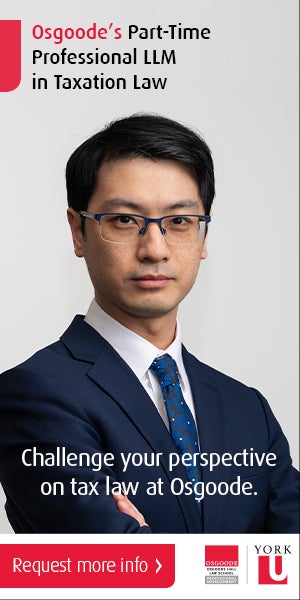
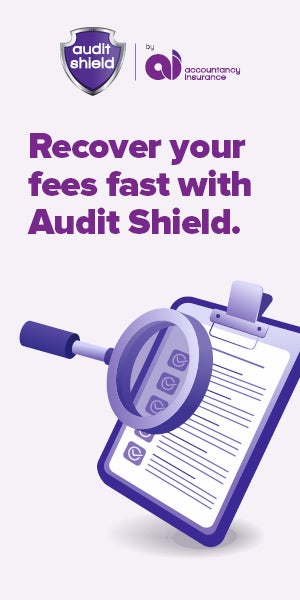
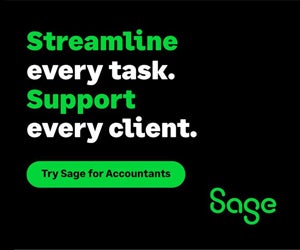



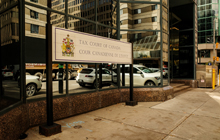
(0) Comments